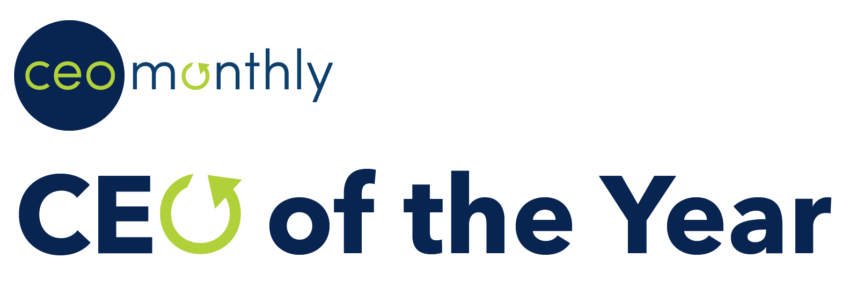How to Use Google Ads for Small Businesses in 2024: A Complete Guide
In today's digital landscape, leveraging online advertising is essential for small businesses aiming to grow. Google Ads presents a powerful platform to reach potential customers effectively. This complete guide will walk you through the fundamentals of using Google Ads, ensuring you can optimize your campaigns and achieve your business goals in 2024.
Understanding Google Ads for Small Businesses
Google Ads is an online advertising platform that allows businesses, especially small businesses, to promote their products and services through targeted ads. By utilizing keywords that resonate with your target audience, you can ensure that your ad appears in Google search results. This guide to Google Ads will help business owners navigate the complexities of online advertising and enhance their visibility on Google.
What is Google Ads?
Google Ads is a program developed by Google which enables businesses to create advertisements that appear on Google search results and its display network. The service functions on a pay-per-click basis, meaning you only pay when someone clicks your ad. By carefully selecting keywords and crafting compelling ads, small businesses can effectively reach their desired audience and drive traffic to their website or landing page.
Benefits of Using Google Ads for Small Businesses
Using Google Ads can significantly benefit small businesses by providing a cost-effective method to reach potential customers. With detailed targeting options and conversion tracking capabilities, businesses can measure their success and optimize their campaigns. Moreover, Google’s keyword planner assists you in selecting the best keywords for your ads, ensuring that you invest your small budget wisely and achieve meaningful results.
Setting Up Your Google Ads Account
Setting up your Google Ads account is the first step toward launching your first Google Ads campaign. To get started, you'll need a Google account to access the platform. Once you've created your account, you can define your business goals and select the type of ads you want to run—be it text, display ads, or even video ads. This foundational step will set the stage for optimizing your future campaigns.
Creating Your First Google Ads Campaign
Defining Your Campaign Goals
Defining clear campaign goals is crucial for the success of your Google Ads campaign. Begin by identifying what you want to achieve, whether it's increasing website traffic, generating leads, or boosting sales for your small business. Establishing specific, measurable objectives will guide your campaign strategy and help you optimize your ads effectively. A well-defined goal allows you to focus on the right keywords and target the appropriate audience, ultimately improving your chances of conversion.
Choosing the Right Keywords for Your Campaign
Choosing the right keywords is essential when creating your first Google Ads campaign. Utilize Google’s keyword planner to research and select keywords that align with your business goals and target audience. Focus on long-tail keywords that are specific to your products or services, as they often have less competition and a higher conversion rate. By strategically incorporating these keywords into your ads, you can improve your ad visibility on Google search results and attract the right customers.
Setting a Budget for Your Google Ads Campaign
Setting a realistic budget is a vital step when launching your Google Ads campaign. Determine how much you are willing to spend daily and monthly to promote your business. Consider factors such as your industry, competition, and the cost per click associated with your chosen keywords. Although you may have a small budget, effective budgeting can still yield significant results. Monitor your spending closely, and adjust your budget as needed to ensure maximum ROI from your online advertising efforts.
Optimizing Your Google Ads Campaign
Understanding Bids and Budgeting Strategies
Understanding bids and budgeting strategies is crucial for optimizing your Google Ads campaign. Bidding determines how much you are willing to pay for each click on your ad, and various bidding strategies can align with different business goals. For example, cost-per-click (CPC) bidding is common for driving traffic, while target return on ad spend (ROAS) focuses on maximizing conversions. Experimenting with different bidding strategies can help you find what works best for your small business, ultimately enhancing your ad performance.
Competing with a Small Budget
Competing with a small budget in the world of Google Ads can be challenging but not impossible. Focus on niche keywords that are less competitive yet highly relevant to your products or services. Additionally, consider utilizing ad extensions to enhance your visibility without increasing your ad spend. Craft compelling ad copy that resonates with your target audience to improve your click-through rate. By implementing these strategies, you can effectively use Google Ads to grow your business despite budget constraints.
Tracking and Analyzing Campaign Performance
Tracking and analyzing your campaign performance is essential for continuous improvement. Utilize Google Analytics alongside your Google Ads account to gain insights into user behavior and conversion tracking. Monitoring key performance indicators such as click-through rates, conversion rates, and overall ROI will allow you to identify what works and what doesn’t. Regular analysis enables you to make data-driven decisions, adjust your strategy, and optimize your campaigns, ensuring that your online advertising efforts are as effective as possible.
Best Practices for Google Ads in 2024
Leveraging Ad Extensions for Better Visibility
Leveraging ad extensions is a best practice that can significantly enhance the visibility of your Google Ads. These extensions allow you to provide additional information, such as your business address, phone number, or links to specific landing pages, directly in your ads. By utilizing ad extensions, you can give potential customers more reasons to click on your ad, improving your click-through rates and overall ad performance. This added visibility helps your small business stand out in the competitive landscape of Google search results.
Utilizing Targeting Options Effectively
Utilizing targeting options effectively is crucial to maximizing the impact of your Google Ads campaign. Google offers various targeting features, including demographics, location, and interests, enabling you to reach your ideal audience. By carefully defining your target market, you can ensure your ads are shown only to users who are most likely to convert. This not only helps in optimizing your ad spend but also increases the chances of achieving your business goals, ultimately leading to a higher return on investment.
Ad Copy Tips for Small Businesses
Creating compelling ad copy is essential for small businesses looking to attract attention through Google Ads. When crafting your ads, focus on clear messaging that highlights your unique selling propositions and includes a strong call to action. Use keywords effectively to ensure your ads appear in relevant search results, and consider A/B testing different variations to discover what resonates best with your audience. A well-optimized ad copy can lead to higher engagement rates and drive more traffic to your landing page.
Growing Your Business with Google Ads
Scaling Your Google Ads Efforts
Scaling your Google Ads efforts involves expanding your campaigns to reach a broader audience while maintaining efficiency. Start by analyzing your existing campaigns to identify successful keywords and ad formats. Gradually increase your budget or explore new ad types, such as display ads or video ads, to capture a diverse audience. As you scale, continue to monitor performance metrics and use Google’s conversion tracking to ensure that your growth aligns with your business goals, maximizing your return on advertising spend.
Integrating Google Ads with Other Marketing Strategies
Integrating Google Ads with other marketing strategies can create a cohesive approach that amplifies your business’s reach. Combine your Google Ads efforts with social media marketing, email campaigns, and content marketing to create a unified messaging strategy. For instance, retargeting ads can be used to reach users who have previously engaged with your content. This holistic approach not only drives traffic but also enhances brand awareness, allowing you to grow your business more effectively in the competitive digital landscape.
Case Studies of Successful Google Ads for Small Businesses
Examining case studies of successful Google Ads for small businesses can provide valuable insights into effective strategies. These examples illustrate how various businesses have leveraged Google Ads to achieve remarkable results. From selecting the right keywords to optimizing ad copy and utilizing ad extensions, these case studies highlight practical applications that can inspire your own campaigns. By learning from others' successes and challenges, you can better navigate your Google Ads journey and enhance your chances of achieving similar success.
We’re Ready When You Are
See What We Can Do For Your Business


















